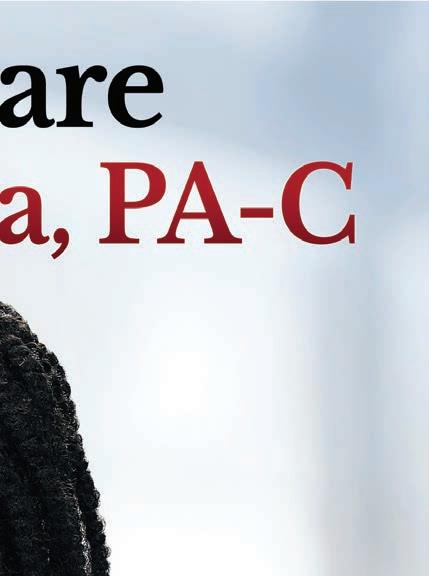THE ATTACKS KEEP COMING
















































































ADDRESS PO Box 53352

Washington DC 20009
PHONE
202-747-2077
E-MAIL news@washblade.com
INTERNET washingtonblade.com
PUBLISHED BY Brown Naff Pitts Omnimedia, Inc.
PUBLISHER
LYNNE J. BROWN lbrown@washblade.com ext. 8075

EDITORIAL
EDITOR
KEVIN NAFF knaff@washblade.com ext. 8088 SR. NEWS REPORTER LOU CHIBBARO JR. lchibbaro@washblade.com ext. 8079

WHITE HOUSE CORRESPONDENT
CHRIS KANE ckane@washblade.com extg 8083
INTERNATIONAL NEWS EDITOR
MICHAEL K. LAVERS mlavers@washblade.com ext. 8093
POP CULTURE REPORTER
JOHN PAUL KING
PHOTO EDITOR
MICHAEL KEY mkey@washblade.com ext 8084

CONTRIBUTING WRITERS
DANIEL ITAI, EDICIÓN CIENTONCE, QUORUM, WDG, STEPHANIE MONDRAGÓN, ISAAC AMEND , TINASHE CHINGARANDE, DUNIA ORELLANA, REPORTAR SIN MIEDO, PARKER PURIFOY, PETER ROSENSTEIN, MARK LEE, LATEEFAH WILLIAMS, KATE CLINTON, KATHI WOLFE, ERNESTO VALLE, YARIEL VALDÉS GONZÁLEZ, LYNARE ROBBINS, PHILIP VAN SLOOTEN, KATLEGO K. KOLANYANE-KESUPILE, KAELA ROEDER, TREMENDA NOTA, ALBERTO J. VALENTÍN, MAYKEL GONZÁLEZ VIVERO, ORGULLO LGBT. CO, ESTEBAN GUZMAN, ANDRÉS I. JOVÉ RODRÍGUEZ, WINTER HAWK CREATIVE DESIGN/PRODUCTION AZERCREATIVE.COM
SALES & ADMINISTRATION
DIRECTOR OF SALES & MARKETING











STEPHEN RUTGERS srutgers@washblade.com ext. 8077


SR. ACCT. EXECUTIVE BRIAN PITTS
bpitts@washblade.com ext. 8089
CLASSIFIED ADVERTISING/ADMINISTRATION


PHILLIP G. ROCKSTROH prockstroh@washblade.com ext. 8092
NATIONAL ADVERTISING
RIVENDELL MEDIA 212-242-6863; sales@rivendellmedia.com
For distribution, contact Lynne Brown at 202-747-2077, ext. 8075. Distributed by Southwest Distribution Inc.

All material in the Washington Blade is protected by federal copyright law and may not be reproduced without the written consent of the Washington Blade. The sexual orientation of advertisers, photographers, writers and cartoonists published herein is neither inferred nor implied. The appearance of names or pictorial representation does not necessarily indicate the sexual orientation of that person or persons. Although the Washington Blade is supported by many fine advertisers, we cannot accept responsibility for claims made by advertisers. Unsolicited editorial material is accepted by the Washington Blade, but the paper cannot take responsibility for its return. The editors reserve the right to accept, reject or edit any submission. A single copy of the Washington Blade is available from authorized distribution points, to any individual within a 50-mile radius of Washington, D.C. Multiple copies are available from the Washington Blade office only. Call for rates. If you are unable to get to a convenient free distribution point, you may receive a 52-week mailed subscription for $195 per year or $5.00 per single issue. Checks or credit card orders can be sent to Phil Rockstroh at prockstroh@ washblade.com. Postmaster: Send address changes to the Washington Blade, PO BOX 53352 Washington, DC 20009. The Washington Blade is published weekly, on Friday, by Brown Naff Pitts Omnimedia, Inc. Rates for businesses/institutions are $450 per year. Periodical postage paid at Washington, D.C., and additional mailing offices. Editorial positions of the Washington Blade are expressed in editorials and in editors’ notes as determined by the paper’s editors. Other opinions are those of the writers and do not necessarily represent the opinion of the Washington Blade or its staff. To submit a letter or commentary: Letters should be fewer than 400 words; commentaries should be fewer than 750 words. Submissions may be edited for content and length, and must include a name, address and phone number for verification. Send submissions by e-mail to knaff@ washblade.com.
























In a little-noticed development, a federal judge on Feb. 21 of this year dismissed a lawsuit filed in 2015 by gay former D.C. police officer Christopher Lilly accusing fellow officers and supervisors of subjecting him to discrimination, harassment, and retaliation based on his sexual orientation.
In a 65-page ruling, U.S. District Court Judge Emmet G. Sullivan explained why he approved a motion filed by the District of Columbia requesting a summary judgement decision dismissing the case based on the assertion that the lawsuit lacked sufficient evidence to substantiate that discrimination of any kind took place.
The motion was filed by attorneys with the Office of the D.C. Attorney General, who represented the District and the Metropolitan Police Department of Washington, D.C., who were named as defendants in the lawsuit filed by Lilly.
Neither Lilly nor his attorney, Sameera Ali of the D.C. law firm Ali, White & Coleman, responded to a request by the Washington Blade seeking comment on the judge’s ruling.
Lilly charged in his lawsuit filed in May 2015 that between 2011 and 2013 he was subjected, among other things, to repeated anti-gay name-calling and other forms of harassment, including the placement of more than a dozen AIDS awareness stickers on his locker at the Fourth Police District, where he was stationed.
At the time he saw the AIDS stickers on his locker he also saw that someone wrote the word “fag” on the locker and poured a white liquid on the floor next to the locker simulating semen, according to the lawsuit.
The lawsuit says the discriminatory actions began shortly after December 2010 when “without plaintiff Lilly’s knowledge or consent, his sexual orientation, homosexual, was publicized maliciously and intentionally” at the Fourth District.
“Following plaintiff Lilly’s ‘outing,’ any other officer to come into contact with plaintiff Lilly subjected him to scrutiny, retaliation and ridicule by means of vulgar language, slandering his name and abilities to function as a police officer and questioning his abilities to serve due to his sexual orientation,” the lawsuit alleged.
The lawsuit, among other things, charged D.C., through the actions of police officials, with violating the D.C. Human Rights Act, which bans discrimination based on sexual orientation, and violating Title VII of the U.S.
Civil Rights Act of 1964, by discriminating against Lilly because of his gender and sexual orientation, creating a hostile work environment, and retaliating against him when he raised objections to the alleged discrimination.
In his ruling dismissing the case, Judge Sullivan points to arguments in the District’s answer to the lawsuit filed in 2020 and in the District’s motion calling for summary judgement, that Lilly failed to provide sufficient evidence to support his allegations.
The judge also cited what he described as multiple undisputed facts presented by the AG Office attorneys showing that Lilly had faced disciplinary actions for breaching police rules, including not showing up for work or showing up late for his shift of duty.
Other allegations by the MPD against Lilly, which Judge Sullivan says were unrelated to his sexual orientation, involved the temporary revocation of his police powers in 2012 due to alleged emotional stress he faced from a work-related exposure to bedbugs, according to the judge’s account of court filings.
“
A few days later, Mr. Lilly was referred by MPD officials for a Psychological Fitness for Duty Evaluation,” the judge states in his ruling.
“Gloria Morote, a licensed clinical psychologist, evaluated Mr. Lilly on October 10, 2012, and October 24, 2012, alongside MPD referral documents informing her that ‘following a period of good service, Officer Lilly’s performance and appearance began to deteriorate in August/ September 2012,’ including ‘two major investigations for neglect of duty,’ ‘deterioration’ in his mental condition, and ‘marked nervousness and erratic behavior while on-duty after exposure to bedbugs,’” the judge wrote in his ruling.
Over the next several months, the judge’s ruling states, Lilly continued to get into trouble for being late for work and other breaches of police rules leading up to May 22, 2013, when “Mr. Lilly was placed on administrative leave after ‘rambling’ with ‘glassy’ eyes to a commanding officer about being sent by his family to a ‘funny farm,’” Judge Sullivan continues in is ruling.
“Then, on May 31, 2013, Mr. Lilly self-admitted into Dominion Hospital, a mental health facility in Virginia, to receive psychiatric treatment,” Sullivan states.
He reports in his ruling that based on Lilly’s record of infractions of police rules and his mental health status, the Police and Firefighters’ Retirement and Relief Board
(PFRRB) “ordered Mr. Lilly’s retirement, determining that he was incapacitated from further duty by reason of a disability incurred in the performance of duty, and his retirement took effect on August 16, 2013.”
Court records show that under this forced retirement order Lilly would receive 40 percent of his salary as part of his retirement benefit.
“Drawing every justifiable inference in Mr. Lilly’s favor, as the Court must do, it finds no basis under Title VII or the D.C. Human Rights Act upon which a reasonable fact finder could conclude that the District had discriminatory intent based on his gender and/or sexual orientation or was retaliating against him for taking part in a protected activity,” Sullivan concludes in his ruling. “Accordingly, the District’s Motion for Summary Judgement, EFC No. 45, is granted.”
The judge described his action as a “final appealable order,” which indicates that Lilly could appeal the ruling to the D.C. Court of Appeals.
Lilly and his lawyer, Sameera Ali, couldn’t immediately be reached to determine whether Lilly plans to appeal the decision.
Shortly after Lilly’s lawsuit was filed, officials with the MPD and the Office of the Attorney General declined to comment, saying they could not discuss issues surrounding a pending lawsuit. But then Assistant D.C. Police Chief Peter Newsham, who later became Chief of Police, told the Blade the department does not tolerate discrimination.

“I can’t talk about a specific lawsuit,” he said. “But I can tell you about how we don’t tolerate bias by any members of this police department,” said Newsham. “It’s something we take very seriously. And if we become aware of it, corrective action will be taken all the way up to removal if it was severe enough,” he said.
U.S. Sen. Benjamin L. Cardin will not seek reelection to the U.S. Senate after three terms, ending a career in public service that spanned more than half a century and opening up a potential scramble among politicians to replace him.
“I’ve had a great run,” said Cardin, a Democrat. “Next year will be 58 years in elected office. It’s been the honor of my life.”
Even with his 80th birthday looming, Cardin said he feels great and that he’s doing good work for the people of Maryland. But he acknowledged that running for reelection would be a commitment of nearly two years of campaigning, followed by six years of serving.
“Recognizing at the end of the next term I’d be 87 years old, it’s a factor,” Cardin said in an interview with The Baltimore Banner. He said he’s looking forward to
spending the last two years of his term focused solely on issues important to him, from helping small businesses to improving health care and promoting human rights.
Cardin’s first electoral win was in 1966, when he joined the Maryland House of Delegates representing Baltimore at age 23. He rose to become the youngest speaker of the House, serving from 1979 until 1986. His portrait hangs in the House chamber in the State House in Annapolis.
In the 1986 election, Cardin won a seat in the U.S. House of Representatives representing the Baltimore region. And after 20 years there, Cardin won election to the U.S. Senate in 2006, following the retirement of longtime U.S. Sen. Paul Sarbanes.
Cardin was reelected to the Senate in 2012 and 2018.
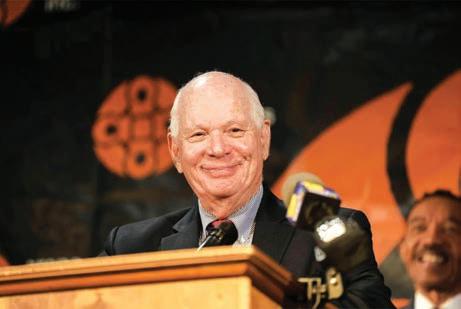



























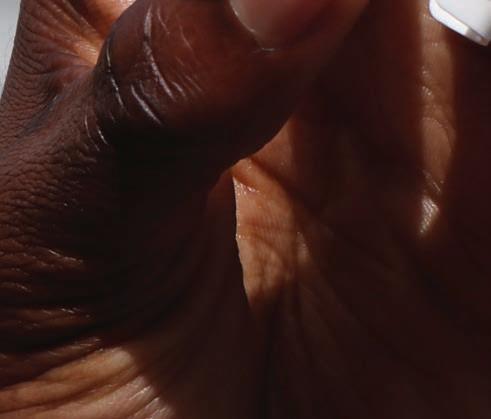







A ‘Focused Patrol and Community Engagement Policing Strategy’ announced last week by D.C. Mayor Muriel Bowser and D.C. Police Chief Robert Contee to combat the rising incidents of violent crime in the city will have a positive impact in addressing hate crimes targeting the LGBTQ community, according to Contee.
Bowser and Contee provided details of what they said is an expanded version of the existing community engagement policies in place for D.C. police officers at an April 27 news conference.
In response to a question from the Washington Blade asking if the expanded community engagement strategy would help police investigate and prevent hate crimes, including those targeting the LGBTQ community, Contee said a key to investigating hate crimes is building a relationship of trust between the police and members of the community who are at risk of becoming victims of a hate crime.
“So, one thing it might very well do is strengthen that relationship,” Contee said. “And so, with that you can see an actual increase in the reporting because people are more comfortable having those conversations with our police officers,” he said.
He was referring to the belief by police officials and community activists that many hate crimes in D.C. and other locations go unreported because victims, especially LGBTQ
The Comings & Goings column is about sharing the professional successes of our community. We want to recognize those landing new jobs, new clients for their business, joining boards of organizations and other achievements. Please share your successes with us at: comingsandgoings@washblade.com
Congratulations to Kyle Fradkin on his new position as D.C.-based Legislative Policy Advisor with the County of San Diego. On accepting the position, he said, “As someone who’s first job was working for the County of Los Angeles while in high school, this new role as the D.C.-based Legislative Policy Advisor with the County of San Diego feels like a full circle kind of moment. I look forward to bringing a decade of experience in government affairs to advocate for the residents of the county here in Washington.”

Prior to this, Fradkin was Deputy Director of Public Policy with MAZON: A JEWISH RESPONSE TO HUNGER. Among other duties he managed the organization’s relationship with members of Congress and their staff. Prior to that he was Senior Government Affairs Associate for J Street. He
victims, are often reluctant to call police or other law enforcement agencies.
D.C. police hate crime statistics show that for at least the past five years the largest number of reported hate crimes involve LGBTQ people as victims, with the victim’s “sexual orientation” having the highest number of cases compared to other categories such as race, religion, or ethnicity.
The second highest “victim” category is an individual’s gender identity as a transgender person, the D.C. police statistics show.
“This is actually about a police officer who gets out of their car who’s engaging with and who they have a relationship with” members of the community, Contee said in referring to the expanded community engagement policy.
A joint statement released by the mayor’s office and the Metropolitan Police Department says the new policing strategy “will utilize data to identify specific areas in each police district and employ focused patrols for proactive policing, community engagement, and problem solving within a small geographical area.”
The statement adds, “The MPD members assigned to these areas will proactively engage in business and building checks, assist in traffic enforcement, collaborate with the community, and identify area-specific issues with police officials to problem solve and determine necessary solutions to community concerns and crime.”
News of the expanded community engagement policing plans came about three months after gay Dupont Circle Advisory Neighborhood Commissioner Vincent Slatt expressed concern that Dupont Circle area residents, including LGBTQ residents, were being targeted for armed robberies including carjackings by juveniles coming to the neighborhood from other parts of the city.
Slatt and others who spoke at a community listening session organized by D.C. Attorney General Brian Schwalb,
whose office oversees prosecuting juvenile offenders, called for changing the existing city law that prevents the public disclosure of the outcome of cases where a juvenile is arrested for a violent crime.
Slatt couldn’t immediately be reached to determine whether he and other ANC commissioners, as well as the ANC Rainbow Caucus, for which Slatt serves as co-chair, have taken a position on the community policing policy.
The official announcement of the expanded community engagement policing policy also came one day after Chief Contee surprised city officials and community activists by announcing he will retire from his position as police chief on June 1 to take a new job as an assistant director at the FBI.
Contee’s departure ends his 33-year career with the MPD, which began in his role as a police cadet at the age of 17 and continued with a steady rise in the ranks of the department leading to his nomination by Bowser to become chief in December 2020 and the D.C. Council’s confirmation of his appointment in January 2021.
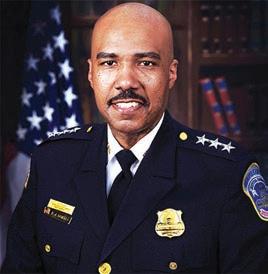
“He has pushed our criminal justice system to do more and be better,” Bowser said in a statement in response to Contee’s plans for leaving. “He has led MPD through an incredibly challenging time for our country – from the pandemic to January 6th and navigating the effects of a shrinking department during a time when gun violence is exploding across the nation,” the mayor said.
“He has been a phenomenal ambassador of what it means to be a police officer in D.C. – brilliant, compassionate, and determined to build a D.C. where all people feel safe and are safe,” Bowser concluded.
LGBTQ activists familiar with the D.C. police have said Contee has been one of the MPD’s most LGBTQ supportive police chiefs. He has been credited with being a strong supporter of the department’s LGBT Liaison Unit.
throughout the year.
Victoria A. Brownworth is a Pulitzer Prize-nominated, award-winning journalist. Her work has appeared in The New York Times, the Los Angeles Times, and The Philadelphia Inquirer, among others. Her work focuses on social justice issues and local and national politics. She is the author and editor of more than 20 books
Dana Piccoli has been writing about the LGBTQ community for more than a decade and is now the editor of News is Out, a queer media collaborative. With a special dedication to queer women’s issues, Piccoli has written for numerous sites, including The Mary Sue, The Decider, Curve, and NBC. She’s the former Managing Editor of the Bella Media Channel and the founder of Queer Media Matters. She lives in Vancouver with her wife.
started with them as Senior Regional Associate in San Francisco.
Congratulations also to the three journalists awarded the inaugural Curve Award for Excellence in Lesbian Coverage. The award, sponsored by the Curve Foundation, honors the contributions of journalists who have dedicated their careers to telling the stories of the Curve community. The award includes a $2,500 cash award and access to unique professional development opportunities. Awardees will be honored with a digital exhibit at curvemag.com, archiving major moments and career accomplishments, and available
Femi Redwood is an award-winning journalist not afraid to ask tough questions or have uncomfortable conversations that lead to teachable moments. Redwood was a host and managing producer of podcasts at Audacy’s NYC news stations, 1010 WINS and WCBS Newsradio 880. She launched several successful shows, including Beyond Black History Month. Redwood spent more than a decade in TV news, including working as a correspondent in prominent newsrooms such as CBS Newspath and VICE News. Redwood is co-chair of the National Association of Black Journalists’ LGBTQ+ Task Force. Redwood lives in Brooklyn with her wife and cat.


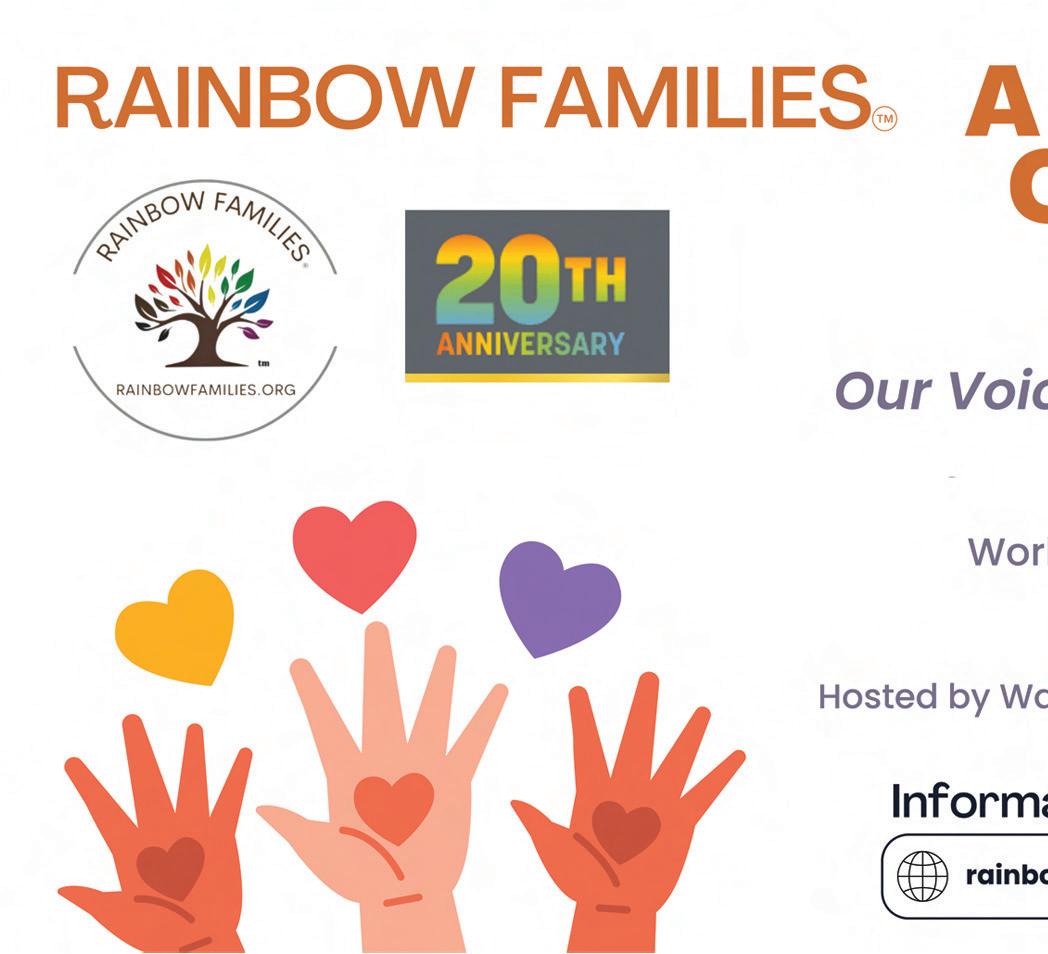

Conservative state legislatures from Florida to Idaho, have finished or will soon finish their business, leaving transgender Americans and their loved ones reeling from the onslaught of attacks against them.
Between 400 and 600 bills were introduced since January that target LGBTQ folks, disproportionately transgender kids – a figure that has often been cited by LGBTQ groups and elected Democrats.
What is often lost in this accounting, however, is how harmful the legislation is (or will be, in the case of so many bills that have yet to take effect), because for those who are directly targeted by the ceaseless legislative and rhetorical attacks, they are hardly an abstraction.
On Monday, Oklahoma became the 16th state to ban guideline-directed best practices healthcare interventions for the treatment of gender dysphoria in minors and the fourth state to make it a felony for providers to administer that care to their patients.
Then, on Tuesday, Montana became the 17th state, having just evicted duly elected state Rep. Zooey Zephyr from the chamber because, in her words, “I dared to give voice to the values and needs of transgender people like myself.”
In March, Kentucky passed what was then deemed “the worst anti-trans bill in the nation,” a healthcare ban augmented by language pulled from Florida’s so-called “Don’t Say Gay” law, which criminalizes discussion of sexual orientation or gender identity in schools.
The following month, just across the border, the torch was passed to Missouri, whose Republican Attorney General Andrew Bailey issued an emergency rule prohibiting gender affirming care for youth as well as adults and then published a form allowing citizens to formally record complaints about “a gender transition” they have “experienced or observed.”
Powerful conservative Christian advocacy groups like the Alliance Defending Freedom have lobbied for anti-LGBTQ bills and defended them from legal challenges. The organization has backed anti-trans measures from restrictions on access to gender affirming care to “Don’t Say Gay” laws.
For trans people, the prospect of having to flee their home states “doesn’t feel theoretical anymore,” Ari Drennen, LGBTQ program director for Media Matters for America, told the Washington Blade.
“
The thing is,” she said, “I feel like we got there a while ago, and I just kind of adjusted, and now it’s like this weird world where I have multiple adult friends who are leaving multiple states for their own safety.”
“
It’s hard to keep perspective of just how bad it’s gotten and just how quickly,” Drennen said.
public life entirely.”
“Those were his exact words,” she said, and “what he’s saying there is that trans people should not be in public, really under any circumstances, and I think that’s where a lot of the right wing media has gotten.”
“This has escalated very quickly in a couple of years from, ‘oh, well, you know, we just have some concerns about the fairness of trans people who are competing in sports,’ to multiple states passing bathroom bills or considering bathroom bills, multiple states expanding what kinds of gender affirming care they’re considering trying to take off the table,” Drennen said.
“And it’s hard to not be alarmed about the direction that this is all heading,” she said.
At this juncture, according to the ACLU:
She added the recent polling data, which indicates “most voters do not think that this is a good use of the government’s time and energy” offers cold comfort because “when that doesn’t seem to stop them, it almost makes it scarier.”
Drennen said the reality for so many of these Republican legislators is “they are just so genuinely opposed to the existence of trans people” that they will continue apace with these legislative crusades, political consequences be damned.
Another concern, often overlooked, is the escalation of transphobic rhetoric that abets the work of anti-trans GOP legislatures and to some extent makes their goals more reachable.
“You can look at The Daily Wire’s Michael Knowles giving his big speech at CPAC,” Drennen said, in which he argued “that transgenderism must be eradicated from
• Anti-LGBTQ bills can be divided into seven categories: Healthcare (e.g., bans on gender affirming care); public accommodations (e.g., laws prohibiting trans people from using restrooms and facilities consistent with their gender identity); schools and education (e.g., “Don’t Say Gay” laws, bans prohibiting trans student athletes from competing in sports); free speech and expression (e.g., restrictions on drag performances, book bans); accurate IDs (e.g., laws prohibiting trans people from obtaining documents that reflect their gender identity); civil rights (e.g., measures to allow discrimination against LGBTQ people); and other (e.g., Alabama’s proposed bill to define “woman” based on sex characteristics at birth).
• Fifteen states have introduced more than 10 anti-LGBTQ bills: Arizona, North Dakota, Kansas, Oklahoma, Texas, Iowa, Missouri, Mississippi, Indiana, Kentucky, Tennessee, West Virginia, Virginia, North Carolina, South Carolina, and Florida.
• Four states and the District of Columbia have not introduced any anti-LGBTQ bills: Pennsylvania, Delaware, Illinois, and Wisconsin.
• 318 anti-LGBTQ bills are now advancing through state legislatures. Forty-five have been signed into law; 105 have been defeated.
U.S. Rep. Marjorie Taylor Greene (R-Ga.) told National Federation of Teachers President Randy Weingarten she is “not a mother” during Wednesday’s hearing by the U.S. House Select Subcommittee on the Coronavirus Pandemic.
The congresswoman also repeated unsubstantiated claims that she made during a previous committee hearing with Weingarten on March 28, asserting that virtual learning had caused an increase in the number of youth in the U.S. who identify as transgender.
Greene had sought to blame Weingarten for advising the Centers for Disease Control and Prevention on school closures. “While kids were forced to stay home, and you approved of this, the number of youths with gender dysphoria surged.”
The firebrand congresswoman’s questioning of the teachers’ union president swerved into personal territory
Wednesday when she asked, “are you a mother?”
“I am a mother by marriage,” Weingarten answered. “And my wife is here with me, so I’m really glad that she’s here.”
Later, Greene said to Weingarten, “The problem is, people like you need to admit that you’re just a political activist. Not a teacher, not a doctor and not a mother.”
Two California Democrats on the committee, U.S. Reps. Robert Garcia and Raul Ruiz, spoke up in defense of Weingarten.

“The decorum of the attacks on the witness were unacceptable, that the gentlelady from Georgia just did, and so it would be nice if we didn’t attack the witnesses, particularly making a decision about whether or not she’s a mother,” Garcia said.
Addressing Weingarten, he added, “you are a mother. Thank you for being a great parent.”
“That was not just cruel personal attacks to Ms. Weingarten who loves her children, it is reflective of the cruel personal attacks any adoptive mother or father who love their children,” Ruiz said. “So I would kindly ask that those remarks be taken out of the record.”
During the March 28 hearing, Greene said, “Since this time, these school closures, we’ve seen a dramatic increase in trans-identifying children, which is not something that was normal nor common many years before this, and I think that’s completely devastating.”
The data suggesting an increase in the number of trans-identifying youth in the U.S. from 2017 to 2022 might instead show the new methods used to analyze the results of last year’s Youth Risk Behavior Survey, multilevel regression and poststratification, collected more accurate information
CHRISTOPHER KANE‘It’s hard to
alarmedFlorida Gov. RON DESANTIS has become the face of antiLGBTQ hate. (Screenshot/Florida Channel)













Last month, the office of Republican Missouri Attorney General Andrew Bailey temporarily removed its online form for members of the public to lodge “a complaint or concern about gender transition intervention” they may have “experienced or observed.”
Bailey had just issued an emergency rule proscribing gender affirming care in the state for minors as well as adults in Missouri, the most extreme restrictions on healthcare for transgender people in any state.
Rabbi Daniel Bogard hesitated, at first, when the Washington Blade called for his reaction. “I never know what language to use.”
As a faith leader with multi-generational ties to St. Louis and its tight-knit Jewish community who is living in the home built by his grandfather, Bogard never imagined having to consider fleeing the state.
“My parents are here. My brother is here. We desperately, desperately want to stay here,” he told the Blade.
Trans people in the state have been scrambling. “None of us none of us know we’re hearing,” Bogard said.
“There have been rumors that lifesaving gender affirming care will be available in Illinois, which at least for St. Louis is right across the river. Then we’re hearing from folks who [are] told by these Illinois organizations that unfortunately they believe they’re not going to be able to serve Missouri residents,” Bogard said. “I want to be very careful because these are secondhand things that I’m being told, right, but that’s where people are at.”
Behind the anti-trans policies in Missouri and elsewhere in the country is “this discourse, the demonization of trans people and trans bodies,” Bogard said. The “rhetoric of otherization and rhetoric that being trans is a social contagion, a mental illness,” he said, is going to be fatal. “People are going to die because of this.”
Bogard estimates he has traveled to Jefferson City (“Jeff City”), the state capital, about a dozen times this year “to lobby and to testify and to beg.” He added, “My mom, who has taken COVID very, very seriously, and hasn’t gone out, her first time really going out in public in an unmasked place was [when] she came down to Jeff City to testify this year, to lobby.”
“My grandma, God love her, all of 87 years old, was asking me the other day about wheelchair access — because she’s worried that she wouldn’t be able to walk in the halls of the Capitol to come down and testify for her great-grandson,” Bogard said.
Asked whether he believes the urgency is understood by elected Democrats, Bogard said, “Our Democrats here in Missouri have no power, I mean none, [but] they fight with every ounce they have for our kids.”
Bogard said because his trans son is just nine, the only gender affirming care he needs is haircuts and boys’ clothes. Still, he said, “the thing I really wish people understood is that what I’m really scared of is the government coming to my door to take away my child for following the best advice of doctors and therapists and professionals.”
So, it can be hard to find the right language.
“I’m a rabbi. So, I don’t say this lightly: This is what it must have been like to be a Jew in 1930 in Europe. It doesn’t feel real, and you can’t believe that it’s actually going to get worse — that they’re going to do the things that they say they’re going to — and then it gets worse.”
Words that come closest to “accurately describing the totality of what’s being pushed in places like Missouri” — like “fascism,” for instance — are exactly those likeliest to be dismissed as hysterical, over-the-top, hyperbole, Bogard said.
Likewise with comparisons between the realities faced by trans Americans today and the treatment of European Jews leading up to the Holocaust, which can be even more difficult for some people to consider seriously on their merits.
“Look,” Bogard said, “I’m a rabbi. So, I don’t say this lightly: This is what it must have been like to be a Jew in 1930 in Europe. It doesn’t feel real, and you can’t believe that it’s actually going to get worse — that they’re going to do the things that they say they’re going to do — and then it gets worse.”
“People don’t get it until they see it — even talking to queer folks and trans folks living in blue enclaves and blue states, they often don’t quite understand the extent of what is happening.”
A more recent analog, Bogard said, might be “the early days of COVID” when people often tended to behave normally, treating others who stocked up on toilet paper and cleared out their desks as paranoid.
The latest move by Bailey, however, should be concerning for everyone. “He had a form to get neighbors to rat out neighbors who are supporting their kids,” Bogard said. “That should terrify anyone who cares about democracy and cares about freedom and cares about religious liberty or individual liberty.”
There are “so many incredibly heroic Democratic lawmakers who know this is true public service, people who get paid $29,000” per year to be a state representative even though they have no power, Bogard said. He noted his son has a photo of Missouri’s lone openly LGBTQ state senator, Greg Razer, on his desk.
National Democrats, by contrast, often fail to fully understand that protecting trans rights is “the fight of our generation,” more consequential than a wedge issue exploited by Republicans to distract from meaningful policy debate, Bogard said.
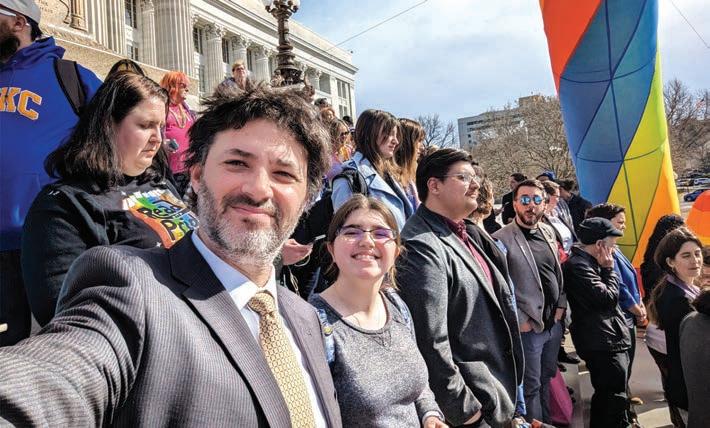
The GOP “has chosen the bodies of trans kids to be the front for their war on democracy,” he said, “And we need national Democrats to stand up and do everything that they can.”
“It’s one of the beautiful parts about being a rabbi,” Bogard told the Blade, “is I can see that there are thousands of years of stories about trans Jews — there have always been trans Jews, because as long as there have been Jews there have been trans Jews because being trans is just another way of being human.”
“We have incredible stories from the 1800s of Jews transitioning and being like, radically accepted in the shtetl in Ukraine,” Bogard said. “In 1977, the largest movement in American Judaism came out and endorsed rabbis officiating marriages that involve a trans person.”
He added that the Reform Movement came out in support of officiated conversions of trans people in 1990, and then published “an incredible position paper on human dignity of trans folks” in 2015 that would be “the best religious statement” on the matter if not for the new one released in 2023 “which goes 10 steps further.”
Bogard said anti-trans and anti-LGBTQ hate is closely linked to anti-Semitism. “When it comes to Jeff City, all of the legislators and all of the people testifying in favor of these bills are coming from deeply white Christian nationalist” enclaves.
He added that most — or close to the majority — of those “who are standing up for trans kids in our state capitol are Jews.” So much so that he said St. Louis Episcopal Priest Mike Angell, struck by how many Jewish people were rallied in support of trans Missourians, called on his fellow Christians to “show up.”
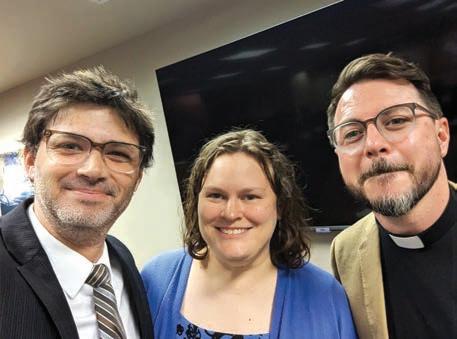
‘We desperately, desperately want to stay here’
ByRabbi DANIEL BOGARD (Photo courtesy Daniel Bogard) Rabbi DANIEL BOGARD with Pastor JENNIFER DAULT HARRIS and Rev. MIKE ANGELL (Photo courtesy Bogard)

Virginia state Del. Danica Roem (D-Manassas) on Monday condemned the censure of Montana state Rep. Zooey Zephyr after she criticized her fellow lawmakers over their support of an anti-transgender bill.

“Censuring Rep. Zephyr is by all evidence an arbitrary and capricious abuse of power by a Republican supermajority whose ‘Freedom Caucus’ members on April 18 — without condemnation or censure for breaking decorum — also insisted on disrespecting her by ‘deliberately’ (as noted by the AP on April 19) misgendering her because they refuse to acknowledge the identities of their trans constituents, let alone their colleague,” Roem told the Washington Blade in a statement.
Roem in 2018 became the first openly transgender person seated in a state legislature in the U.S. Roem the following year became the first out trans state legislator to win re-election in the country.
Montana Republicans last week banned Zephyr, a trans woman who represents House District in the Montana House of Representatives, from the chamber floor after she criticized them over their support of a bill that bans gender-affirming health care for children.
Republican Montana Gov. Greg Gianforte on April 28 signed the measure, even though his nonbinary child had urged him to veto it. Zephyr on Monday filed a lawsuit that challenges her censure.
“Given the precedent established and repeatedly re-established, there is no justification for depriving the people of District 100 their equal representation in the state House,” Roem told the Blade. “Their representative’s full rights and privileges of the floor should be reinstated immediately.”
Roem last May announced she is running to represent Senate District 30, which includes western Prince William County and the cities of Manassas and Manassas Park.
Robert Ruffolo, one of the Republicans who hopes to challenge Roem, has made a series of anti-trans comments on his Twitter account. These include asking a Twitter user who said “trans women are natural women” and “trans women are biological women” whether they are saying “God made a mistake by creating you as a male?”
“We know what we’re up against in this race,” Roem told the Blade on April 23 during an interview before the LGBTQ+ Victory Fund’s National Champagne Brunch that took place at the JW Marriott Hotel in D.C. “We know it is absolutely going to get personal, as well as its going to get on policy. We know that there’s going to be a lot at stake.”
Democrats currently have a 22-18 majority in the Virginia Senate, and they blocked the 12 anti-LGBTQ bills introduced during the 2023 legislative session.
“That is the only thing keeping Virginia from being in the same league as West Virginia, as Kentucky, as you’re about to see in North Carolina now that they got their supermajority, as you’re seeing in South Carolina, Georgia, Florida, Mississippi, Alabama, Louisiana, Texas, Oklahoma,” said Roem. “It gets worse, right? Arkansas, another one. Missouri, geez their attorney general is now trying to block trans care for adults.”
“The only thing that’s keeping us from that is that four seat majority,” she added.
Lieutenant Gov. Winsome Earle-Sears, who presides over the state Senate, and Gov. Glenn Youngkin are both Republicans. Roem told the Blade the governor this cycle
is going to try and flip the “state legislature of a Democratic-voting state.”
The Senate Health Subcommittee earlier this year killed state Sen. Amanda Chase (R-Colonial Heights)’s bill that would have banned transition-related health care for trans youth.
Roem in 2020 introduced a bill that bans Virginia health care providers from discriminating against their patients based on their gender identity. Then-Gov. Ralph Northam, a Democrat, signed the measure into law. Roem noted to the Blade that Chase’s measure would have repealed the statute.
“I’m not saying that we were in imminent danger of that bill,” said Roem, referring to Chase’s bill. “If they (Republicans) have majorities in both chambers and they have this governor, that bill passes. That bill might be introduced by a different member, but that bill passes.”
MICHAEL K. LAVERSThe Pennsylvania House of Representatives on May 2 voted 102 to 98 to approve a bill calling for protecting LGBTQ people from discrimination, marking the first time such legislation has passed in either the state House or Senate in the 47 years since similar bills have been introduced.
Supporters have said the outcome of the bill, called the Fairness Act, is uncertain in the Republican-controlled Pennsylvania Senate, where the legislation is now headed.
“Today is a historic day, as we take a critical step to make Pennsylvania fairer,” a joint statement released by the six Democratic House members who were the bill’s lead sponsors.
“The Fairness Act is as simple as it is substantive,” the statement says. “H.B 300 would protect LGBTQ+ Pennsylvanians from facing discrimination and allow all individuals
in the commonwealth to file complaints with the PA Human Relations Commission,” it says.
“Now, we call on the Senate to quickly consider and pass this legislation and send it to Governor Shapiro’s desk,” the statement concludes.
Only two Republicans joined 100 Democrats in voting for the bill, according to the Philadelphia Gay News. The PGN reports that GOP opponents, among other things, brought up arguments that the legislation would require women’s sports teams to allow transgender women to play on those teams.
The gay newspaper noted that Pennsylvania is the only state in the northeast that doesn’t have a statewide LGBTQ nondiscrimination law. It reports that on the local level, about 73 municipalities in the state have passed LGBTQ nondiscrimination laws, but almost 2,500 municipalities
that make up about 65 percent of the state’s population do not have such laws.
At least 22 states and the District of Columbia have enacted LGBTQ rights laws. Although LGBTQ rights advocates have called on the other states, including Pennsylvania, to pass such laws, activists have also pointed out the landmark 2020 U.S. Supreme Court decision known as Bostock v. Clayton County, Ga., ruled that LGBTQ people are protected under the U.S. Civil Rights Act of 1964. That law bans discrimination in employment and other areas based on a person’s sex or gender as well as other factors such as race, religion, and ethnicity. In an action that surprised many legal observers, the Supreme Court ruling said LGBTQ people were protected under the sex or gender provision in the 1964 Civil Rights Act.
LOU CHIBBARO JR.American officials have postponed a meeting on the President’s Emergency Plan for AIDS Relief’s work in Uganda in order to assess the potential impact the country’s Anti-Homosexuality Act will have on it.
Uganda PEPFAR Country Coordinator Mary Borgman on April 25 sent a letter to the PEPFAR Uganda Country Operational Plan 2023 on behalf of Amb. John Nkengasong, the U.S. Global AIDS Coordinator and Special Representative for Health Diplomacy who oversees PEPFAR.
“I want to thank you for your diligent efforts during the past several weeks for developing the Uganda COP23
plans in a highly complex and shifting landscape,” said Nkengasong in the letter.
“In light of the recent developments with the potential signing of the Anti-Homosexuality Act (AHA) and how that could impact our ability to provide services and assistance, I have made the decision to postpone the Final COP Presentation meeting previously scheduled for April 28,” he wrote. “This postponement will allow us more time to collectively and effectively assess the legal and programmatic implications of the evolving legislation and broder environment in Uganda, which impacts PEPFAR-support-
ed HIV/AIDS programs, and make relevant adjustments in order to resolve COP23 plans as appropriate.”
Nkengasong stressed he is “grateful for the resilience and grace that the team has shown during this difficult time.”
“With regards to current programming, we will continue to assess the needs of PEPFAR Uganda and adapt programs as required to ensure the safety of our staff and beneficiaries and help ensure access to health services remains intact,” he added.
MICHAEL K. LAVERS













NEW PRICE $1,099,000


















in The Grande at Canal Pointe! This Rehoboth Beach 4 bedroom, 3 bathhomehasitall: a great Eastof Rt 1 location & just 1.2 milestotheboardwalk, with a lotlargeenoughforaninground pool! Thishomehasbeenmeticulouslycaredfor andhasloadsofupgrades. Relaxonthe 3 seasons porchwith floortoceilingwindows, orthecustomfrontpatiowithgas fireplace. Otherexteriorfeaturesincludeanirrigationsystemwith separatewellandsolarpanels. The Grande at Canal Pointis a premier Rehoboth Beachcommunitywithtonsofamenities: twopools, clubhouse, fitnesscenter, tennis, basketballcourt, andplayground. Easyaccessto Rt. Oneforshoppingand dining, andbeatthebeachtraffic to Rehoboth Beachwiththe Breakwater Trail!
inthehighlysoughtaftercommunityof Governors. Thisstriking 5 bedroom, 4.5 bathhome sitson a premierlotbackingtothedecorativecommunitypondwithfountain. The Junction Breakwater Trailisconvenientlyaccessiblewithinthecommunitywhichhasresort inspiredamenitiesincluding a clubhouse, pool, fitnesscenter, totlotandmore. Minutesto downtown Lewes, Lewes Beachandthe Cape Henlopen State Park. Alsoconvenientlylocated a shortdriveorbikeridetodowntown Rehoboth Beach!





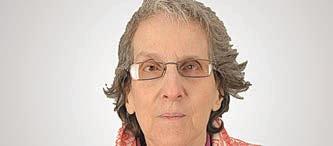
a writer and a poet, is a regular contributor to the Blade.
I love reading — especially LGBTQ writers.
Like many book lovers, I’m remembering Michael Denneny, the openly gay, trailblazing editor, who paved the way for numerous gay authors and queer literature.
Denneny, 80, a co-founder of “Christopher Street,” the queer literary magazine often dubbed the gay “New Yorker,” died on April 15 at his Manhattan home.
If Denneny hadn’t put his heart and soul into fostering queer literature and LGBTQ authors, queer literature might well not be as vibrant as it is now. Without Denneny’s courage and groundbreaking work, LGBTQ creators would find it far more difficult to flourish today.
I don’t want to be a Pollyanna. It’s still difficult for many queer writers to get published – especially for authors who are trans or nonbinary. Often, LGBTQ teens and kids don’t see people like themselves in books. In some countries, and, sometimes, in the United States, queer writers, to protect themselves and/or their loved ones, have to be closeted. Some LGBTQ authors self-publish their work because they can’t get published. Forty-one percent of the more than 1,600 books banned during the 2021-2022 school year were challenged because of their queer content, according to a Pen America report.
And yet, scrolling on my iPad, I see work by two highly talented openly queer authors in a list from The New York Times of 13 new books out this month: “Quietly Hostile: Essays” by queer writer Samantha Irby” and “The Late Americans,” a novel by queer author Brandon Taylor.
That’s with just two taps on my screen.
In recent years, I’ve had the pleasure of reading and reviewing a variety of books by queer authors for the Blade: from “Fairest: A Memoir” by Meredith Talusan (Viking) to “Why We Did It: A Travelogue from the Republican Road to Hell” by Tim Miller (Harper) to “Afterparties: Stories” by Anthony Veasna So (Ecco). These books, along with much that I read by queer authors today, is released by mainstream publishers. On June 9, the 35th anniversary of the Lammy Awards, this year’s Lammys will be presented. This prestigious prize receives queer and mainstream press coverage.

This is a far cry from what the literary scene was like when Denneny entered publishing. Then, he was one of only a few out queer editors in mainstream publishing.
In 1977, Macmillan fired Denneny because he had acquired “The Homosexual,” a book by Alan Ebert that contained interviews with 17 gay men. He was rehired, The New York Times reported, because no other editor would present “The Homosexual” at a sales meeting.
His reconnection with Macmillian was brief. The publishing house fired him again because they were not happy to learn that Denneny was connected with “Christopher Street.”
In 1976, Denneny and Chuck Orleb founded “Christopher Street,” a monthly magazine. For 19 years, the magazine published Edmund White, Gore Vidal, Felice Picano, Matthew Stadler and other well-known and emerging gay writers.
Starting “Christopher Street” at a moment when most literary queers were closeted took guts. Some high-level gay (closeted) publishing executives, “took me out for lunch and subtly threatened to end my career if my name appeared in the magazine,” Denneny told the Gay City News in 2004.

Denneny was frank about his sexuality when he interviewed for publishing jobs. If his being gay was problematic, he’d say “we should just forget about the job and enjoy lunch,” he told Lambda Literary in 2014.
St. Martin’s Press hired him. There, Denneny started Stonewall Inn Editions, the firstof-its-kind in mainstream publishing, LGBTQ imprint. The memorable books published by Stonewall Editions include: “Reports From the Holocaust: The Story of an AIDS Activist” by Larry Kramer and “The Mayor of Castro Street: The Life and Times of Harvey Milk” by Randy Shilts.
Michael, we’ll think of you when we’re laughing out loud or moved to tears while reading our fave queer writers. R.I.P., Michael Denneny!









is a longtime LGBTQ rights and Democratic Party activist. He writes regularly for the Blade.











With President Biden’s announcement that he is running for a second term in 2024, the presidential race has offi cially begun. You will now be subjected to every media outlet’s need to pontifi cate on the race, and every media person wanting to show how smart they are. They want you to think they can predict the future 18 months out.
Many, from print media, will try to outshine each other with stories to get themselves on TV. Depending where you get your news; The New York Times, The Washington Post, The Washington Blade, The Oklahoman or from NBC, ABC, CBS, or cable news, or as I refer to it, cable entertainment, you will get a different take on what is going on. You will have the biases of the journalist, columnist, or TV reporter or anchor, imbedded in what you get to hear or read. You will be inundated with polls, which at this time have little validity. You will get to read stories like a recent one in The New York Times, “Why are Liberal Young Women Hurting? We Asked 13 young Gen Zers.” I felt sorry for some of them. One responded to the question, “In the last week, what has happened in your life that has made you the happiest?” answering, “I got diagnosed with autism a week ago today. I was really excited about that.” These kinds of stories will continue for the next 18 months and you may wonder how they fi nd the people for these focus groups. They may or may not represent any people you know.
Again, it is 18 months until the election and likely 16 months until most Americans will focus on who they want to vote for. Between now and then it is mostly political junkies, and writers like myself, who will focus on every possible nuance of what is happening. If we are honest with ourselves and those we are asking to listen to, or read what we write, each column or newscast should end with the line; “BREAKING NEWS this could all change tomorrow.”

While Democratic luminaries and organizations are falling in line in support of President Biden, Republicans will have a primary, and primary debates. Wow, it will be fun listening to former Vice President Mike Pence spout his religious beliefs, and Donald Trump and Ron DeSantis try to prove who is nastier and more outrageous. Even this last sentence is a guess since except for Trump, the others haven’t announced. DeSantis has been to Israel trying to prove he understands foreign affairs, and kissing the ass of those in the Jewish community who are still Republicans, by embracing Netanyahu. That is sad as both he and Netanyahu both want to do away with democracy.
I am a dyed-in-the-wool Democrat and have been since handing out my fi rst fl yer for Adlai Stevenson for president in 1956, at the age of nine. I have supported both winners and losers over the past nearly 70 years. Lost with Stevenson, but came back a big winner with JFK in 1960. The worst night of my political life was standing in the Javits Center in New York on the night in 2016 when Hillary lost to Trump. That was also the worst election in my lifetime for all Americans, in my humble opinion.
So, for the next 18 months I will tell you why I think Joe Biden should be reelected despite being even older than I am. I will regale you with why he has been a great president. Why any candidate the Republicans put up is lousy, and not worth your vote. Why a possible ‘No Labels Party’ is a joke. I will write my opinion, based on facts I think I know, as a Democrat, a cis-gender man, a proud member of the LGBTQ community, who hates when those not in my community refer to me as ‘queer.’ I will write, like many, from an echo chamber that is Washington, D.C., where our local news is about politics. Where Republicans in Congress interfere with our local government and screw with our residents. I write from a city that votes 97% Democratic. So, keep all that in mind when you read my columns for the next 18 months.
Now it is my hope this column won’t have you overlooking all those to come. Who knows, I may even surprise you, and myself, with some brilliant insights that you will surely miss if you don’t follow me regularly.

















TURINAWE SAMSON
is executive director of Universal Love Alliance.
president has returned Anti-Homosexuality Act to Parliament
At present, LGBTIQ people in Uganda live with fear and trepidation, and rightfully so. They are under constant threat of violence being done to them by other Ugandans. Many who have been outed have been forced to leave where they were residing. Lacking the appropriate travel documents, they can’t go to other African countries, which would be far safer for them. So many come to Kampala, lacking food and shelter and any means of sustainable support. For them to survive under these circumstances presents a variety of very serious challenges.
While homophobia is widespread in Uganda now, its origin is neither Ugandan nor African. It is a consequence of colonialism, a British import if you will. Uganda became an independent country 50 years ago, yet the consequences of colonialism remain, particularly in the spiritual realm. Uganda is a very religious country in that many Ugandans regularly attend church and faith leaders hold important positions of authority in their communities. Some of the churches openly preach homophobia. This is how it spreads. More recently, homophobia in Uganda has been pushed hard by American Evangelical Christians, particularly Scott Lively, as explained in the documentary “God Loves Uganda”.
The current furor is due first, to the anticipation and then second, to the actual passage of the Anti-Homosexuality Bill of 2023 by the Ugandan Parliament. Many Ugandans don’t realize that a bill is not the same as a law. To make a bill into a law it is necessary for President Museveni to sign it. With the present bill, that has not yet happened, and maybe it never will. Recently, the bill was returned to Parliament for strengthening. The danger to LGBTIQ people in Uganda persists nevertheless because ordinary Ugandans are apt to take matters into their own hands.


It is also instructive to consider the recent history of similar legislation in Uganda. In December 2013, Parliament passed a bill quite similar to the current one. In February 2014, President Museveni signed the bill into law. Both in the interim between the bill passage and the President’s signing of it and afterwards as well, there was considerable international pressure applied to undo this law. The politics of this is interesting because, on the one hand, no African country wants to be seen as the puppet of Western powers, while on the other hand, there is considerable economic dependence on these same powers. In August 2014, the Constitutional Court of Uganda annulled the law, ruling that it had been passed without a sufficient quorum. Then in 2019 another effort was made in Parliament to pass the popularly named “Kill The Gays” bill. It was eventually passed by Parliament in May 2021, but then was vetoed by President Museveni in August 2021.
However, it is not just legislative politics that matters regarding the cause of the current situation. Consider the chilling effect generated by Maj. Gen. Francis Takirwa’s public request that health workers in Uganda not treat homosexuals. Most LGBTIQ people in Uganda already viewed health centers as off limits to them, as those were places where they’d face existential threats. Yet HIV is a severe problem in Uganda and those health centers are the way the Ugandan government intends to address the problem. Apparently, it doesn’t address the problem within the gay community in Uganda.
Now let me turn to the organization that I represent, Universal Love Alliance. In fulfilling its mission, ULA provides assistance to the marginalized in Ugandan society. We have given a broad sweep to who counts as marginalized. It includes orphaned children whose parents died from HIV. It includes women with HIV who have lost their husbands and then rely on each other to sustain themselves economically. It includes women battered by their husbands, and the husbands too if they show remorse after the fact. And it includes LGBTIQ people. In more recent time, given the turn of events, ULA has had to refocus its energy. Now our attention is fully on the plight of LGBTIQ people in Uganda.
Their needs are many and varied. When they arrive in Kampala, they need food and shelter, at least on a temporary basis. They may then need a plan for relocation, within Uganda, and some education on how to not be outed in their new location. A good fraction of them has HIV or are fearful that they have it. They need counseling, education and treatment. Alas, some of the counseling is to encourage their mental stability. Many report being suicidal.
Let me close with the following. What I have learned during the extraordinary times that I have been in charge at ULA is that we need to rely on each other. We can’t do it all alone. The title of this piece is about the future of LGBTIQ people in Uganda. That future depends on you. We can’t get from here to there without you. I hope you understand that and agree to help us.

PRICES FROM $429,000 - $1,075,000

Welcome to this exquisite brand new 10 unit development in the H Street Corridor! The building features two penthouse units offering three bedrooms, three bathrooms, two stories of luxury living and a private roof deck. The additional units available include six 2 bedroom, 2 bath units, and two 1 bedroom, 1 bath units. As an added bonus, front facing units have spacious balconies. Each residence boasts a magnificent kitchen with Quartz counters, custom backsplash, stainless steel appliance packages, gorgeous light fixtures and white cabinetry that illuminates the entire home. One of the most striking features of these units is the incredible natural light that floods in through the floor-toceiling windows, offering beautiful views of the surrounding trees and neighborhood. The spacious living area is perfect for entertaining guests or relaxing with your loved ones. The white oak solid wood floors add a touch of elegance and warmth to the space, and the high ceilings create an open and airy feel. Enjoy spacious bedrooms, ample closet space and modern bathrooms throughout.
These new construction condos were built from the ground up by ERB Properties, which is well known throughout the city for condo development and single-family home construction. You can rest assured that this is a high-quality property that’s built to last. Located in the vibrant H Street Corridor neighborhood, enjoy the convenience of being walking distance to Union Market, Whole Foods, Trader Joe’s, and everything H Street has to offer including top rated restaurants, cafes, and shops. Don’t miss the opportunity to make one of these premier residences your own!















SEOUL, South Korea — Hongdae, a neighborhood in Seoul, South Korea, is known for its vibrant nightlife and indie music scene. By day, it’s a shopping and café mecca. By night it’s a crazy, alcohol-fueled playground. What’s easy to miss — and not even many Koreans living in Hongdae know about — is that hidden in plain sight, there are also secret lesbian clubs where women can gather and be themselves without fear of judgment or discrimination.
“Hongdae is the lesbian area of Seoul,” my good friend blurted out when I told him over dinner. He’s been a resident of Hongdae for more than seven years but had never noticed. Most Koreans don’t know any LGBTQ people as Korean society is conservative and not accepting of homosexuality. Hongdae’s reputation as a more free-thinking, hipster haven makes it a perfect location for openness — albeit in private.
In South Korea, homosexuality is not illegal, but it is not widely accepted, especially in more conservative areas of the country. Seoul is more open compared to the countryside but not open enough for lesbians to be open. Same-sex couples cannot legally marry or adopt children and discrimination against the LGBTQ community is still prevalent.
Allen, a Korean woman in her 20s says, “There is a very strong homophobic atmosphere [in Korea] regardless of generation.”
Despite these challenges, the LGBTQ community in South Korea has been gradually (very gradually) gaining some visibility and acceptance in recent years such as an LGBTQ dating reality show “Merry Queer” following lesbian, gay and transgender couples. Seoul’s gay Pride parade — which last year drew thousands of participants despite protests from conservative religious groups — shows a shift in thinking too. However, it’s not enough progress as lesbian and bisexual women are still meeting in the dark.
One way in which the community has been able to connect and support each other is through secret lesbian clubs. Goon Young* is a Seoul freelancer in her mid-20s. Growing up she was constantly told that being straight is “natural” which left her feeling confused about her sexuality. “I thought I was bisexual when I was in college. I figured out that I don’t like men only about two years ago.” Goon Young enjoys hanging out at Hongdae’s lesbian club scene regularly.
These clubs are not advertised openly and are often hidden in inconspicuous side-streets, or in basements behind mainstream clubs.
One of these secret clubs is close to an infamous drinking spot for foreigners and when some foreign men were turned away for not being women, they looked visibly confused. It’s a large, luxe club with a strict no photograph rule. There’s table service and the DJ blasts Korean rap such as Jay Park and Zico.
This club and most of the others won’t easily pop up when you search on your phone’s map so usually lesbians need to get to know another lesbian to ask around for the exact location. This typically involves going to an LGBTQ bar first, or meet-up group and making friends there, as blurting out to your work buddies “Oh, by the way, is anyone else here gay?” wouldn’t go down too well in Korea. Goon Young concurs, “I’m pretty open to people that I love, someone like my mom or friends, but you can’t really tell people who are coworkers or someone [you] just met.”
Discrimination and stigma against the LGBTQ community persist in many areas of South Korean society,





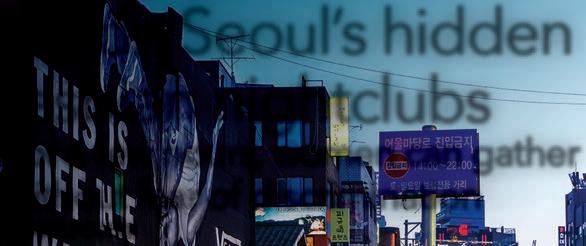

 By ASH POTTER
By ASH POTTER
including the workplace and school. Many LGBTQ individuals still face rejection from their families and friends, and some even resort to conversion therapy to try and change their sexual orientation.
Luckily Goon Young’s mom is supportive, but not entirely convinced. “I came out to my mom — who loves me — last year. She still loves me and cheers me up when I have heartbreaks with girlfriends. But she says she still can’t take it seriously and gay things are not ‘natural,’ she always tells me to meet some good guys and date them even though I always reply to her that I don’t like men.”
The lesbian nightlife scene’s purpose is truly to create a safe space and respect the privacy of all. There’s so much trust in these clubs that “lonely heart” style personal ads are displayed on the big projector screen behind the DJ in the first club where I partied. After all, queer dating isn’t as straight-forward in a country that prizes straightness.
Inside these clubs, women let their guard down and can be themselves. They can dance, drink, and socialize without fear of being judged or harassed. Legally speaking, South Korea doesn’t have comprehensive LGBTQ anti-discrimination laws so the fear of physical safety for the LGBTQ community really means that a “safe space” carries much more weight than a “safe space” in a country where there’s more acceptance of gay rights.
Another safe space was a tiny club a little walk away from the big, “lonely hearts personals” club. What it lacked in size it made up for in chaotic ENERGY! Nobody was sitting in a corner here and after picking up my free drink included with the entry fee (every club did this), it was hit after hit from rapper Lil Nas X to K-pop group BLACKPINK.
Although lesbian and bi women were dancing wildly, enjoying the night, even within these safe spaces, many club-goers still feel the need to remain cautious as the fear of being outed can be overwhelming.
The last club I went to carried this caution. Located on an inconspicuous street, women were looking over their


shoulders when paying in. That is, right up until the elevator doors shut. Once shut, women let their guards down and asked me how I found out about this place. Once inside — free drink handled (every club did Budweiser as a free drink option) — it was a playground of EDM, large opulent bottle service with half-undressed bartenders. One of them was even passing around free shots from one of the stripper pole podiums.
If there’s a lesbian heaven, I think I caught a glimpse of it here.
The cool air hit me as I left for home but nobody walking past suspected that the women leaving this club were not heterosexual. The fact that these clubs are still a secret highlights the need for greater acceptance and visibility of the LGBTQ community in South Korea. While progress has been made in recent years, there is still a long way to go before LGBTQ individuals can openly express their identities without fear of discrimination or being attacked.
“Young people in Korea are pretty open to LGBTQ, [but] of course, there are [some] who hate LGBTQ people. Most of the old people just can’t take it”, Goon Young says.
The existence of secret lesbian clubs in Hongdae and other parts of Seoul is a testament to the resilience and strength of the LGBTQ community in South Korea, also. Despite facing significant challenges and obstacles, these women have found a way to connect and support each other, creating safe spaces where they can be themselves.
Hongdae’s secret world of lesbian clubs offers a glimpse behind the curtain. Despite many hurdles, on a late, spring night in underground Hongdae clubs, women danced and flirted freely for the few hours they could be themselves.
(Editor’s note: Some names have been changed to protect identities of sources. Ash Potter is a freelance journalist based in Seoul.)
For a few hours, women can gather without fear of discrimination



Friday, May 05
Center Aging: Friday Tea Time will be at 2 p.m. on Zoom. This event is a social hour for older LGBTQ adults. Guests can bring a beverage of choice. For more information, contact adamheller@thedccenter.org.
GoGay DC will host “LGBTGQ+ Social” at 7 p.m. at The Commentary. This event is ideal to make new friends in the LGBTQ community and enjoy the bottomless happy hour specials at Puro Gusto. Admission is free and more details are available on Eventbrite.
Saturday, May 06
Virtual Yoga Class with Jesse Z. will be at 12 p.m. online. This is a weekly class focusing on yoga, breath work, and meditation. Guests are encouraged to RSVP on the DC Center’s website, providing your name, email address, and zip code, along with any questions you may have. A link to the event will be sent at 6 pm the day before.
LGBTQ People of Color Support Group will be at 1 p.m. on Zoom. LGBTQ People of Color to come together and talk about anything affecting them in a space the strives to be safe and judgement free. There are all sorts of activities like watching movies, poetry events, storytelling, and just hanging out with others. For more details, visit thedccenter.org/poc or facebook.com/centerpoc.
Sunday, May 07
Gay Day at the Zoo will be at 10 a.m. at the Smithsonian National Zoo. For one day, hundreds of LGBTQ folks, families, and allies come together to show their pride and enjoy the animals and sights at the National Zoological Park. Admission is free and tickets can be reserved at this link.

GoGay DC will host “LGBTQ+ Coffee & Conversation” at 7 p.m. at As You Are. This event is ideal for those looking to make more friends in the LGBTQ+ community and trying to meet some new faces after being isolated by the pandemic. Admission is free and more details are available on Eventbrite.
Center Aging Monday Coffee and Conversation will be at 10 a.m. on Zoom. LGBT Older Adults — and friends — are invited to enjoy friendly conversations and to discuss any issues you might be dealing with. For more information, visit the Center Aging’s Facebook or Twitter.
“Reign: A Drag Variety Show” will be at 8 p.m. at Dupont Italian Kitchen. This will be a a fun night of randomness featuring Dabatha Christie, Hennessey, Sirene Noir Sidora Jackson, and Anamosity. Tickets are $5 and can be purchased on Eventbrite.
LeadingAge DC will host “Lunch & Learn! New LTC Regulations RE: LGBTQ Seniors and Seniors with HIV” on Monday, May 8 at 10:30 a.m. at Capitol Commons. Discussion will be centered on learning how to ensure compliance and share insights, questions, and expertise on implementation considerations of the Care for LGBTQ Seniors and Seniors with HIV Amendment Act of 2020. Jen Jackman, partner at Ice Miller LLP and participant in OHR’s first certified training cohort, will walk through the five parts of the Act and share best practices for implementation.
This event is free and more details are available on Eventbrite.
Washington Blade editor Kevin Naff will discuss his new book, “How We Won the War for LGBTQ Equality — And How Our Enemies Could Take It All Away,” at a special event in Baltimore. The discussion is hosted by the Baltimore Banner and moderated by DEI reporter John-John Williams. Wine and cheese will be offered and books will be available for purchase. The event starts at 6 p.m. at the Banner’s offices, 621 E. Pratt St., Suite 400, Baltimore. More information at kevinnaff.com
Coming Out Discussion Group will be at 7 p.m. on Zoom. This peer-facilitated discussion group is a safe space to share experiences about coming out and discuss topics as it relates to doing so. For more details, visit the group’s Facebook page.
Trans Support Group will be at 7 p.m. on Zoom. This group is intended to provide emotionally and physically safe space for trans people and those who may be questioning their gender identity/expression to join together in community and learn from one another. For more details, email supportdesk@thedccenter.org.
Wednesday,
Job Club will be at 6 p.m. on Zoom. This is a weekly job support program to help job entrants and seekers, including the long-term unemployed, improve self-confidence, motivation, resilience and productivity for effective job searches and networking — allowing participants to move away from being merely “applicants” toward being “candidates.” For more information, email centercareers@thedccenter.org or visit www.thedccenter.org/ careers.
“Wasted & Gay Thursdays” will be at 9 p.m. at Wasted Lounge. The event will be hosted by Nelly Nelz and there will be music played by DJ Ro. There will also be food, drinks and hookah. Tickets cost $5 and can be purchased on Eventbrite.
Insight Memory Care Center will host “Author Spotlight: Welcoming LGBT Residents” on Wednesday, June 7 at 11 a.m. The event will be in person at the center’s Fairfax location and also online.
This event, in collaboration with AARP Virginia, will highlight Tim R. Johnston, author of “Welcoming LGBT Residents.” It will be an open discussion to learn practical tips on working with LGBT older adults in senior living settings.
The event is free and more details are available on the center’s website.













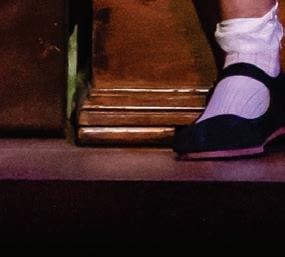





DC Theater Arts

 By PATRICK FOLLIARD
By PATRICK FOLLIARD
Life and love brought out actor Víctor Salinas to D.C. And while the love part has changed since coming to town three years ago, his passion for a life in theater remains the same.

“I knew Washington was a city of networking,” he says, so with that in mind he set off meeting people. One new connection introduced him to Rebecca Medrano (GALA Hispanic Theatre co-founder with husband Hugo Medrano) and a lunch date was scheduled. Armed with resume and photos, Salinas, 40, did his best to convince his dynamic new contact that he could act, write plays, do some production, and literally run marathons. In short, he was ready for anything.
Things kicked off in 2021 when GALA asked him to take over a supporting role in their production of “La Tía Julia y el escribidor (Aunt Julia and the Scriptwriter),” Mario Vargas Llosa’s comedy about the final days of radio drama in 1950s Peru. More work has followed: earlier this year he played the ambitious young lawyer in “Jardín salvaje (Native Gardens),” and now he joins a terrific cast including GALA stalwarts Luz Nicolás and Carlos Castillo in Spanish playwright Alfredo Sanzol’s raucous ghost story “La Valentía (Valor).”
“Valor” is a farce involving family, property, and ghosts. When discordant sisters Trini and Guada can’t agree on what to do with the old family manse situated uncomfortably close to a loud highway, each hatches a slightly hair-brained plan. Trini brings in a pair of ghost impersonators (the Specter Brothers) to scare her sister out, while Guada tries to keep the place going with Airbnb guests Martín and Martina, a period-dressed brother and sister with a vested interest in the house. Salinas plays Martín.
WASHINGTON BLADE: Do you have siblings?
VĺCTOR SALINAS: I do. I have a younger brother who is an engineer.

BLADE: Could you two survive a clash similar to what the sisters undergo in “Valor”?
SALINAS: If it had happened 15 years ago, we would surely have collided, but if it happened today, we’d likely be on the same page.
BLADE: You mentioned that you’ve been sober for 14 years. Any correlation?
SALINAS: It’s not a coincidence. That choice changed my life, and my relationships in many ways. It’s like I started to be my true self without distractions or numbness.
BLADE: How does your sexuality impact your work?
SALINAS: I’m open to whatever the role. Being gay has made me observant and given me the experience to connect with feelings and emotion. That helps to construct characters in a sensitive and different way. I’ve played straight characters without issue. I made a very convincing Romeo in Chicago [his home base for eight years prior to D.C.].
Growing up in Mexico City, I started acting classes at age six and did my first play when I was ten. I always was true to myself and very comfortable. I came out to my mother when I had my first boyfriend at seventeen. She cried, blamed herself, and promised to continue to love and support me, and she has. Definitely the best-case scenario.
BLADE: You also write. You wrote a play titled “LOVEknots.”
SALINAS: Yes, it’s about love and relationships (trans, straight, gay, platonic, familial), and features four actors playing seven roles each in 17 short vignettes. It was onstage for more than three years in Mexico City. I really want to bring it to Washington.
SALINASBLADE: Anything else you’d like to do here?

SALINAS: I’m going to do my play “La Pájara de San Juan,” a Trump-era drama about two sisters, one documented, one not, at the Mexican Cultural Institute in September in Spanish with English surtitles. It premiered at the International Latino Theater Festival 2022 in Chicago.
BLADE: Talk about Spanish versus English for you.
SALINAS: Last year I was cast in my first English speaking play “La Llorona” [a Latin American folktale] at Capitol Hill Arts Workshop. It’s easier for me to act in Spanish but I love working in English too. Let’s just say I’m transitioning.
After three years in town, I’m still learning the theater scene. I came at the beginning of the pandemic, so it’s been amazing to watch the city come back to life. Really, I’m just very lucky and thankful to be onstage because that’s my favorite place in the world to be.
BLADE: And finally, do you believe in ghosts?
SALINAS: I do. Not in a scary way, but more as a form of energy and love.




 By EVAN CAPLAN
By EVAN CAPLAN

George Katinas, a child of immigrants, opened Paramount Steakhouse in 1948 on the corner of 17th and Church streets, N.W. (where JR.’s is currently located). Three-quarters of a century later, the restaurant has changed its name and location, received accolades from the city and James Beard, and was deservedly feted last weekend. His son Paul now owns the restaurant, and runs Annie’s today with his daughter Georgia Katinas.
George ran the restaurant with his sisters, but it was a singular sister Annie who coaxed the restaurant into its status as a place of community and acceptance for the growing LGBTQ population in Dupont Circle. Katinas renamed the restaurant for her. When there were desperately few areas of safety, Annie’s stood out, and does still today.
Last Saturday, Annie’s pulled out all the stops for an all-day party under a brilliantly sunny sky. The clouds parted for the celebration, bringing together government officials, longtime customers, and families with new fans. A rainbow balloon arch perched across the 17th Street sidewalk.

Drag artists Kimberly Di’Nitta, Victoria Di’Nitta, Jayzeer Shantey, Genocide Abrasax and Candi H. Fuentes performed, Miss Gay Arlington greeted fans, and the Gay Men’s Chorus of Washington sang several renditions a capela for the crowd – including “Happy Birthday” over an enormous cake with sparkler candles (Annie’s has been a longtime supporter of the Gay Men’s Chorus).
“Taking a moment to sing happy birthday with Potomac Fever Group of Gay Men’s Chorus, this moment was so emotional,” said Georgia.
Anne’s set up a swag tent, selling collectible pint glasses featuring caricatures of the Annie’s family, like George and Annie herself. There was also a raffle, carnival snacks, and sidewalk games like a pie walk and martini race.
Vincent Slatt of Rainbow History Project was there to take it all in. Armed with a microphone, he interviewed

Sponsored By






partygoers to talk about why Annie’s was meaningful to them on the occasion of the anniversary.
In 2019, the James Beard Foundation announced that Annie’s Paramount Steakhouse, won the America’s Classic award for the Mid-Atlantic region (Ben’s Chili Bowl has also won this award). These awards are given “to locally owned restaurants that have timeless appeal and are beloved regionally for quality food that reflects the character of its community,” according to the James Beard website.
“Annie’s became home, and was there when there weren’t too many other opportunities or places to go,” says owner Paul Katinas (George’s son) in a previous interview. Annie’s also developed a strong relationship with the Washington Blade after the newspaper was founded in 1969.
After the outdoor festivities closed at 6 p.m., the party moved inside to Annie’s upper level for an appropriately festive afterparty.
Georgia notes that the anniversary “gave us a moment to reflect and think about how much has changed in 75 years, yet how much we’ve kept Annie’s the same. It’s a reason to celebrate and reflect. We’re so grateful for the support of our regulars.”
As for the next 25 years? Georgia says that the restaurant industry will be affected by the new tipped-wage law, but is adamant that Annie’s will remain.
“We will preserve what we have, honor our past, while making new memories.”
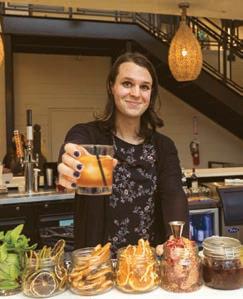
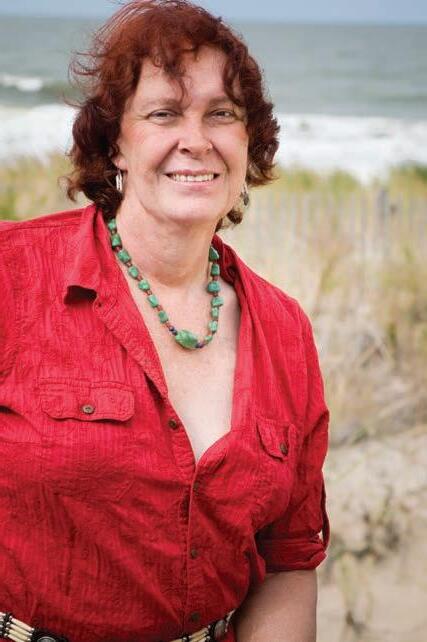



























All are invited to join us on May 12 or 13 for a Globetrotter-style basketball show with the Harlem Legends! Bring the whole family for an afternoon of comedy and ball-handling wizardry!

Do you have your own aspiring basketball star age 7-14?

Before the show on each day, the Legends will host a basketball skills clinic for both girls and boys, who are eager to “up their game.”
Learn more and purchase tickets at barrie.org/legends
•Join us for a small group tour on Wednesdays
•Attend one of our upcoming information sessions
Learn more and register at barrie.org/admissionion
Registration is now open for summer 2023 at barrie.org/camp.


Ages 3.5-14
Spaces are almost full!

Join us for a summer of adventure! Montessori
6

We all know at least one couple who can never seem to get along. Whenever we spend time with them, no matter the occasion or setting, they can’t help taking jabs at each other and triangulating everyone who will listen to them into their volatile dynamic. We might sympathize with them, like them, or even love them, but we can only stand to be around them in small doses.
Which is why “Smothered,” an indie-made sitcom about a longtime gay couple who can’t stand each other and spend virtually every minute of screen time saying so in the most hateful ways possible, sounds like a terrible idea.
Created, written, and produced by its two stars, Jason Stuart and Mitch Hara, it’s the story of Ralph and Randy, a Boomer-aged married pair whose decades-old love appears to have fizzled out long ago. Apart from being gay and Jewish, they don’t have much in common, and they seem like total opposites; Ralph (Stuart) is a needy romantic still clinging to his fantasy of a happy-ever-after marriage, while Randy (Hara) is a vain and unapologetically shallow serial cheater who eagerly jumps at any opportunity to spit venom at his nebbish-y spouse. To call their relationship dysfunctional would be putting it lightly – for one thing, fighting with each other also turns them on, which leads to some amusingly uncomfortable moments – but even if it weren’t, they would still be insufferable. Why would anyone want to watch a show that essentially consists of nothing but these two sniping at each other?

That’s not a hypothetical question, because people do want to watch it – enough so, in fact, that after becoming an acclaimed hit on Amazon Prime in 2020 (due in part, undoubtedly, to the pandemic-driven need for a constant flow of easily-accessible home entertainment content), Stuart and Hara’s meagerly-budgeted, DIY-style comedy not only got the green light for a second season, but conducted a successful GoFundMe campaign to deliver it. It drops this month on Amazon Prime, Revry, and all major streaming services, with slicker production values and an expanded cast that includes recognizable guest stars.


So how did this happen? One reason, certainly, is the show’s short-form structure – most episodes are approximately 4 to 10 minutes long – lets audiences consume it in bite-sized chunks and step away in between segments if needed. The second reason, however, is that it’s wickedly funny – and that makes those little breaks not only unnecessary, but unlikely.
In the first season, “Smothered” established a format in which its two anti-romantic leads spent each episode hashing out their differences in front of an ever-changing parade of therapists – none of whom last through more than one session with them. It was a gimmicky-but-clever conceit that allowed the couple’s story to be told through both of their own filters while providing a great platform for Stuart and Hara, whose elaborate verbal sparring flows like a river of shiny-but-jagged jewels. Ralph and Randy are firmly established as hateful from the beginning of episode 1, and proceed to show us just how over-the-top their hatefulness is until we love them for it in spite of ourselves.
With the second season – and an expanded budget – the show breaks free of its self-imposed boundaries to become less of an exercise in “variations on a theme” improvisational comedy and more closely resemble a traditional sitcom. Picking up where the previous season left off, Ralph and Randy are finally resolved to get a divorce, but after a financial catastrophe and a subsequent brush with the law, they can’t afford it; furthermore, to qualify as residents in a new subsidized housing facility for LGBTQ elders, they must be a couple – so they are forced to continue living together. There are still a few therapists (or, in some cases, surrogate therapists) in the mix, but this time around we get to see the couple’s interactions with other characters and experience their life together first hand instead of only through the catty and quippy recaps with which they would regale their couples counselors in
season one.
It’s a positive move, allowing the show to grow wider and avoid the pitfalls of sticking to a formula with enticing-yet-finite possibilities. It also allows the characters to become more fully drawn; they’re still just as horrible, but somehow, by experiencing things with them instead of only as a barrage of comedic zingers, they become more human to us, more relatable. The things we saw in them that reminded us of ourselves were part of why we laughed at them in season one, but now they are the things that help us start to like them a little, and maybe even – can it be so? – begin to root for them to get over themselves and rekindle the love for each other that obviously still burns inside them.
Another benefit of opening up the show’s format is the freedom to add characters who can stick around to become part of the story, like the uber-butch lesbian manager of their housing facility (pioneering queer TV veteran Amanda Bearse in a hilariously tongue-in-cheek performance) or the hunky Latino chef (Bryan Quiros) whose coming between them might just be the thing that pushes them back together again. The biggest boon, however, is the opportunity it gives Stuart and Hara to deepen their characters, to let go of their comic ferocity – just enough of it, at any rate – and simply be real, once in a while. It makes a big difference, because while season one was a solid, funny, and deliciously snarky good time worth bingeing over a night or two, season two has evolved enough to let us see, a little more clearly, that it also has a heart. Considering that short-form narratives are still often disregarded by many audiences over their presumed insubstantiality, it’s no small feat when one proves such prejudices to be unfounded.
We don’t want to scare you away, though. Heart or no, it’s also still a fast-and-furious onslaught of bitchiness and bad behavior that will have you cringing and laughing at the same time. Likewise, while it makes a point of diversity and inclusiveness among its widened cast, it also delights in flagrantly stepping over the line into “politically incorrect” territory, skewering contemporary oversensitivity with the kind of irreverent generational humor (confusion over pronouns, anyone?) and campy stereotype that might raise a few hackles among viewers too young to remember the days when such transgressive comedic flourishes were one of our greatest weapons against the cookie-cutter conformity of hetero-centric mainstream.
In any case, “Smothered” seems unconcerned with offending people – though in some cases, it almost seems to delight in doing so – and never lets any kind of “agenda” take the focus away from the absurdly vicious love/hate dramedy going on in the middle of it all. With Stuart and Hara’s playful chemistry, sharp writing, and finely-tuned acting carrying most of the weight, that’s more than enough reason to cast off any preconceptions you might have and take a dip in the “short form” pool. In this case, the water’s fine.









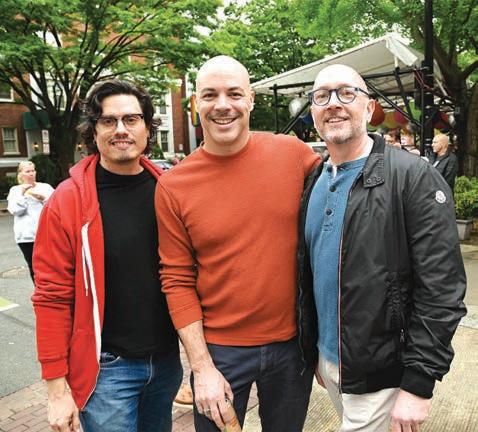
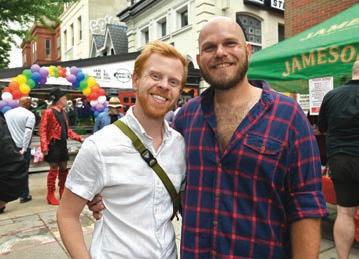




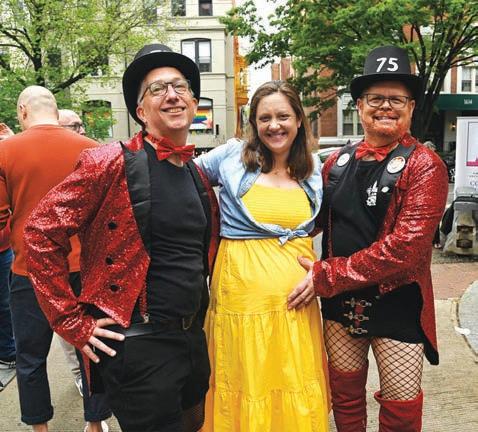



I have been on a quest lately to convert my favorite photos to digital files. The number of pictures I have makes companies like Legacybox cost-prohibitive, so I downloaded an app called Photo-myne to my new S22 Ultra, with its high-end camera. The app allows you to snap a picture of a photo and automatically upload it to your phone or computer, while also allowing black and whites to be colorized, if desired. There are basic editing features and a place adjacent to each photo where you can record the date and any special information about it. You can keep the resulting photos in folders. For example, some of mine are Baby Pictures, College Years, Family and, of course, Dogs.
I tell you all this because while rummaging through my own photos and those of my mother that I saved when she passed away, I ran across a pamphlet entitled 303 Valuable Household Tips that announced it was “of great value to every person in every home.” It was published in 1954 and cost 35 cents a copy.
I sat down to read the tips and realized that I had to share some with you. Many are outdated, but quite a few are still good today. Tips include such categories as cleaning, cooking, and food preparation, stain and odor removal, and home repair. I assume no responsibility for the effectiveness of these tips or the availability of ingredients, but here are my favorites.
• To clean stained bottles and narrow-mouthed vases, cover the bottom with salt and fill one-third with vinegar. Let stand overnight and shake vigorously.
• Vinegar is also helpful for removing decals. With a paintbrush, work very hot vinegar under the edges of the decal and let it soak in. You will then be able to wash off the decal with clear water.
• Dispel musty closet odors by leaving a pan filled with household ammonia in the closet overnight. A version of this diluted with water works for a freshly painted room too and on wooden salad bowls.
• Add one ounce of pure vanilla extract to a gallon of paint and stir well to prevent the paint odor we’re all familiar with.
• Remove rust stains and streaks caused by a dripping faucet by covering the stains with oxalic acid, let stand a minute, and wipe off with a damp cloth.
• Wax painted woodwork to remove fingerprints and dirt later with only a damp cloth. The dust from your freshly swept floors will slide off easier if you also wax your dustpan.

• Soak slightly wilted vegetables in vinegar and water to bring out their crispness again.
• Store coffee in the refrigerator to preserve the flavor and refresh the taste of reheated coffee with a dash of salt.
• Use tweezers to pull out pin feathers from poultry. (They don’t tell you this at Popeye’s.)
• If baking powder is old and lumpy, restore it by heating it in the oven.
• Determine the freshness of fish by checking to see if the eyes are clear and bright. (It’s also a sign they are fresh if they wink at you.)
• To remove a rusted screw, apply a very hot iron to the head and use your screwdriver while the head is still hot.
• Never wash an electrical appliance in water or you’ll ruin the heating element (especially if the appliance is still plugged in).
• Prevent white paint from turning yellow by adding a drop of Prussian blue artist’s pigment mixed in turpentine to each quart.
• Window screens painted with white or aluminum paint thinned with turpentine will keep outsiders from seeing in while still allowing you to see out.
• Paint the last step of cellar stairs white to reduce the possibility of tripping.
• Carry a clean blackboard eraser in the car to clean up steamed-up windows.
• A button sewn on with dental floss will last much longer than one with thread.
• Light furniture scratches can be concealed by rubbing them with the meat of a pecan or walnut, followed by furniture wax.
• Old nylon stockings make perfect shoe dusters and polishers.
• Wrap sandwiches in wax paper and seal the edges with a hot iron. (Bye bye, expensive Ziplock bags!)
• Use your alarm clock (yes, I still have one) to tell you when your favorite radio or television show starts so you won’t miss the beginning.
And my favorite tip: When your telephone rings, don’t cause an accident by running to answer it. If it’s important, they’ll call back. If not, maybe you’ve saved some valuable time.
These days, they’ll probably text you anyway.











SUPERIOR COURT OF THE DISTRICT OF COLUMBIA PROBATE DIVISION
2023 ADM 000488
Name of Decedent: Morgan Stanley Norris
Notice of Appointment, Notice to Creditors and Notice to Unknown Heirs
Crystal Rhinehart, whose address is 2017 Newton St. NE, Washington, DC 20018 was appointed Personal Representative of the estate of Morgan Stanley Norris who died on October 14, 2022 without a Will and will serve without Court supervision. All unknown heirs and heirs whose whereabouts are unknown shall enter their appearance in this proceeding. Objections to such appointment (or to the probate of decedent’s Will) shall be filed with the Register of Wills, D.C., 515 5th Street, NW, Building A, 3rd Floor, Washington, DC 20001, on or before 11/05/2023. Claims against the decedent shall be presented to the undersigned with a copy to the Register of Wills or to the Register of Wills with a copy to the undersigned, on or before 11/05/2023, or be forever barred. Persons believed to be heirs or legatees of the decedent who do not receive a copy of the notice by mail within 25 days of its publication shall so inform the Register of Wills, including name, address and relationship.
Date of first publication: May 05, 2023
Crystal Rhinehart, Petitioner Nicole Stevens, Register of Wills, Clerk of the Probate Division
Massage for active adults. Private studio near Rosslyn. Fri-Mon, 12-8. text 301-704-1158 or visit http://www.mymassagebygary.com

CDS, VINYL LPS, 78S. All types. Classical a specialty. Details on Craigslist under 21701: 78. Emmitsburg Antique Mall. Booth 101. 1 Chesapeake Way. Emmitsburg, MD 21727 emmitsburgantiquemall.com
Residential & Commercial Cleaning, Reasonable Rates, Free Estimates, Routine, 1-Time, Move-In/Move-Out

202-234-7050 / 202-486-6183


People Individual/couple counseling with a volunteer peer counselor. GMCC, serving our community since 1973.
202-580-8661
gaymenscounseling.org No fees, donation requested.
Wash, DC. Duties: Global sec risk & crisis mgt str, ensure reg compl, prgm implem. MA Security/inlt affrs, exec prot/intel. CV: giaver.productions.llc@gmail.com
Dupont: downsizing, cleaning, handy work, errands, driving… 5 to 15 hours a week to start. For more information & interview, call 202-491-6399
Local licensed company with over 25 years of experience. Specializing in bathrooms, kitchens & all interior/exterior repairs. Drywall, paint, electrical & wallpaper. Trevor 703-303-8699
legal services. Jennifer represents LGBTQ clients in DC, MD & VA interested in adoption or ART matters. 240-863- 2441


JFairfax@Jenniferfairfax.com
Since 1987. Gay & Veteran Owner/Operator. Lincoln Continental Sedan! Proper DC License & Livery Insured. www.KasperLivery.com. 202-554-2471

Let Our Movers Do The Heavy Lifting. Mention the Blade for 5% OFF of our regular rates. Call today 202.734.3080
www.aroundtownmovers.com
A Dream Come True! This beautiful Old Town Key West estate has recently been meticulously reimagined from top to bottom! Enjoy classic Conch architecture with a 2-story main house, a charming guest house, and a stunning pool/ waterfall/spa on a 7100+ SF lot with an unrivaled indoor-outdoor lifestyle. Interested? Follow the link for more info https://bit.ly/1017MargaretKHN or call me: 305-587-9230, Juan Benitez, Real Estate Agent

THE MAGIC TOUCH Swedish, Massage or Deep Tissue. Appts. Low Rates, 24/7, In-Calls.



